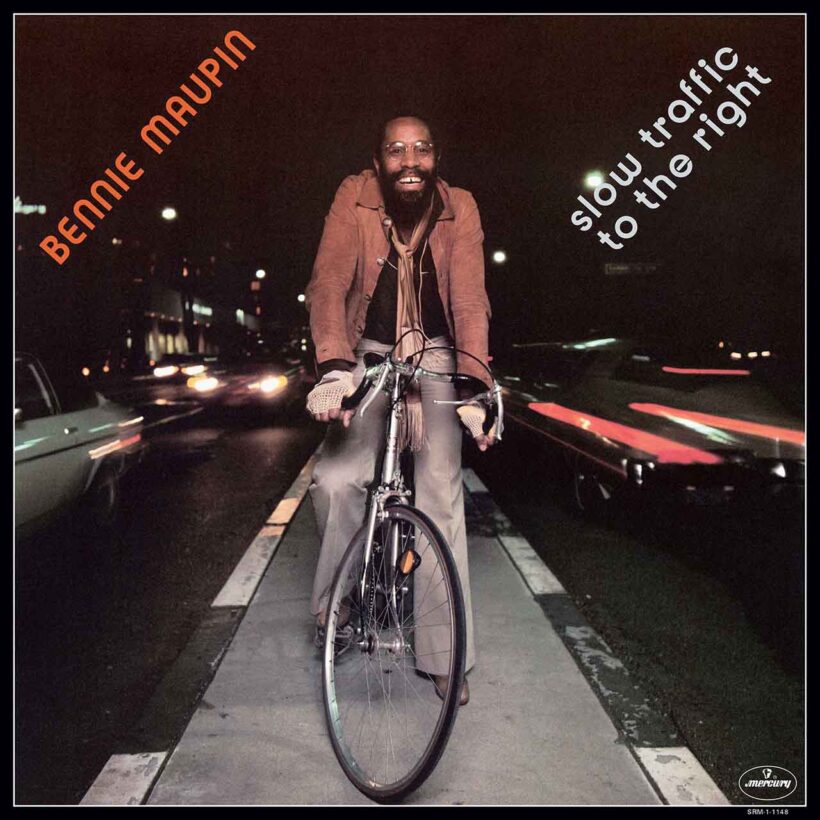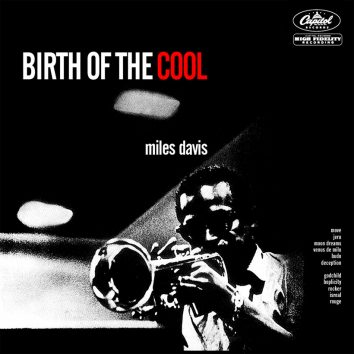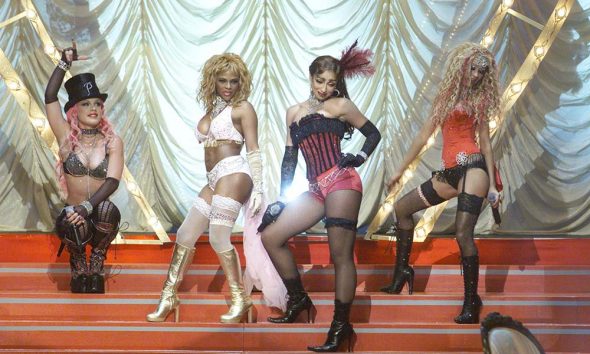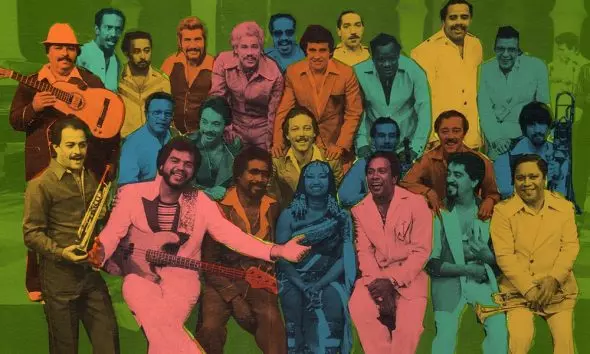‘Slow Traffic to the Right’: Bennie Maupin’s Celebrated Second Album
The 1977 record is more conventionally commercial than ‘The Jewel and the Lotus,’ with excellent tracks throughout.

Bennie Maupin holds the distinction of being the only musician to play on both Miles Davis’s Bitches Brew and Herbie Hancock’s Head Hunters – the two most historically significant albums of jazz’s late ’60s/early ’70s foray into rock and funk. This alone makes him a key figure in the evolution of fusion. But Maupin’s status as a versatile woodwind player (commandeering tenor and soprano saxophone, bass clarinet, and flute) was seeded well prior, having served as a sideman in groups led by Marion Brown, Horace Silver, Lee Morgan, and others within the hard-bop/post-bop circuit. Neither was his adaptability confined to varied instrumentation. As a soloist Maupin could be as lyrical, robust or harmonically adventurous as the context demanded – qualities that made him ideal for the intrepid explorations of Davis’s electric period (appearing on Big Fun, On the Corner, and Jack Johnson) and Hancock’s experimental Mwandishi ensemble. As a composer, he might as readily contribute an ethereal slowburn beauty like “Neophilia” to Morgan’s quintet, as he could the main riffs to Hancock’s Head Hunters smash, “Chameleon” – the track that propelled the entire jazz-funk subgenre forward.
Maupin’s first recording as a leader, 1974’s gorgeous The Jewel and the Lotus, emphasized the meditative qualities of his work. Three years later – and concurrent with his tenure as a member of the Headhunters band – Slow Traffic to the Right, sees him marrying this approach (as represented by the lovely “Eternal Flame” and “Lament”) to a more conventionally commercial sound. In lesser hands this might prove problematic. However Maupin’s vision and execution – in tandem with frequent collaborators like bassist Paul Jackson, trumpeter Eddie Henderson, and producer Patrick Gleeson, amongst others – never feels imbalanced. Introduced by a striking melodic progression before giving way to a punchy motif in the “Chameleon” mode, “It Remains To Be Seen” catches fire via solos from Maupin on saxophone and a dazzling Patrice Rushen on keyboards. When the piece pauses from its danceable handclap groove into contemplation, it’s revealed – through Maupin’s hymnlike vocal – that the title isn’t skeptical at all, but hopeful: “Peace for the world will be seen/ Because one man had a dream.” “You Know the Deal” is less conceptually ambitious but musically even tighter – a downtempo number bursting with funky intricacies that would make it ripe for sampling by hip-hop producers like Madlib and Mr. Attic decades down the line.
Click to load video
“Water Torture” and “Quasar” – two Maupin compositions initially recorded with the Mwandishi band – reflect their author’s skill for reinvention. In the former’s previous incarnation, it was an epic 14-minute journey evocative of harrowing historical and mythological passages. Here, slimmed down to its slinky theme, it’s transformed into a sleek soundtrack for late ’70s street navigation. Similarly, where the Mdwandishi crew’s “Quasar” employed the tune’s 7/4 theme as the liftoff for impressionistic, abstract improvisation, Slow Traffic’s terrific “Quasar” reboot maximizes the composition’s melodic strength. The ultimate team-player on his own recording date, Maupin doesn’t even take a proper solo. Instead he keeps his flute and saxophone couched comfortably within the production’s lush orchestration as it builds to a fervent peak – a moment of beauty and exhilaration exemplary of Bennie Maupin’s selfless gifts.
Order Slow Traffic to the Right by Bennie Maupin on vinyl now.










